#Environmental Impact
Text
Congo💔🕊️




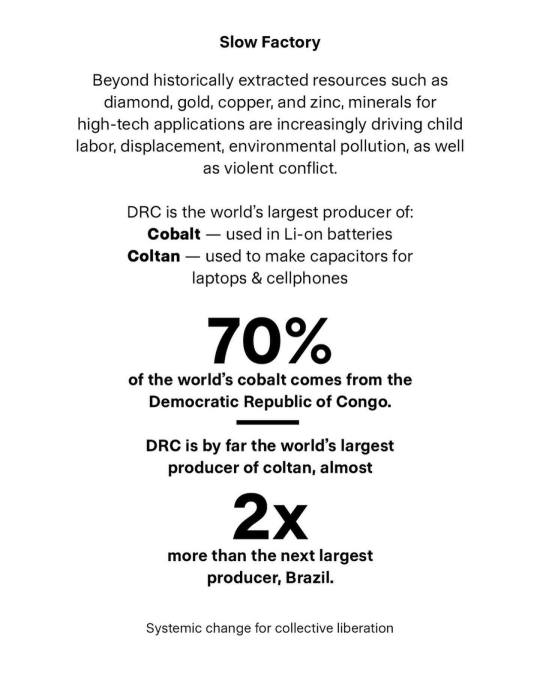

We really cannot be free until we all are free.
#Congo Genocide#Conflict Minerals#Cobalt Exploitation#Coltan Crisis#Resource Exploitation#Human Rights Abuse#Environmental Impact#Corporate Accountability#DRC#Mineral Supply Chain
14K notes
·
View notes
Text
It's being estimated that the spaceX launch, lacking the regulation and oversight of NASA launches, might have wiped out as much as 4% of the population of the federally protected Piping Plovers who's nesting site was within the effected area of the launch blast.

But you know, privatising space is cool because billionare fanboys think it's awesome.
#spaceX#environmental impact#environmentalism#protected species#endangered species#piping plovers#capitalism will kill us all#but its starting with the birds#NASA has oversight and regulations for a reason actually#Put scientists in charge of space not business
5K notes
·
View notes
Text

no way! this is totally something we have never done before!

imagine

different cultures around the world

using the power of the wind

to move across the ocean!
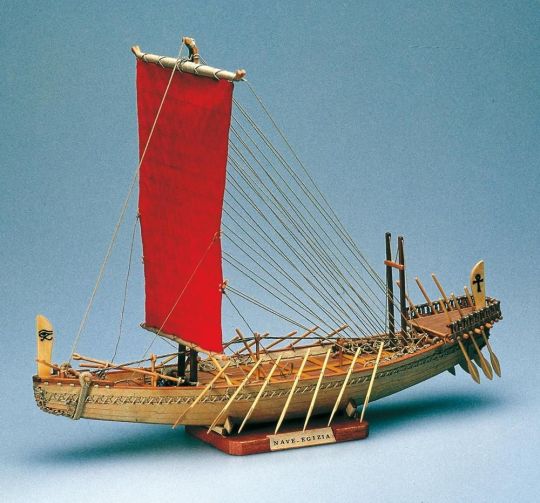
omg!

it's so innovative you guys!

totally not something we have been doing for thousands of years!
#cnn#never heard of this one before!#twitter#they don't know what to say anymore#environmental impact#environment#naval ships#pirates of the caribbean#they were eco friendly#new!#ecofriendly#alternative dropped! just cosplay a pirate#sailboats
2K notes
·
View notes
Note
Sound pollution?
Yes! Sound pollution does exist and it's very likely you live in an area that has it. Human machinery and industry are the major causes of it. Think of the sounds of traffic, airplanes, and engines!
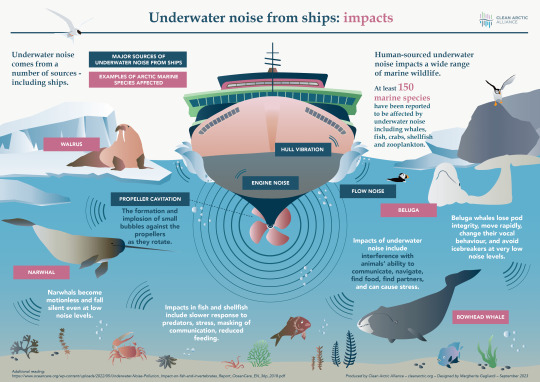
[via]
78 notes
·
View notes
Text

#environmentalism#environmental activism#environmental#environmental justice#environmental impact#environmental science#environmental issues#environmental responsibility#environmental awareness#political#political science#political posting#politics#leftist#leftism#leftisim#left wing#left wing politics#leftist politics#socialist#socialism#climate crisis#climate change#climate action#climate catastrophe#climate emergency#climate and environment#climate activism#climate justice#climate science
54 notes
·
View notes
Text

#textile recycling#apparel recycling#come ON#we NEED it#make the big brands establish the thing and the small brands can then also use it!!!#let's gooooo#environmental impact
114 notes
·
View notes
Text
#tiktok#environmental activism#environmetalists#environmentalism#environmental justice#environmental impact#environmental science#climate crisis#climate change
12 notes
·
View notes
Text
THERE'S ALSO A GENOCIDE HAPPENING IN THE CONGO!!!!! THERE'S ALSO A GENOCIDE HAPPENING IN THE CONGO!!!!! THERE'S ALSO A GENOCIDE HAPPENING IN THE CONGO!!!!!
#congo#genocide#horror#congo genocide#conflict minerals#cobalt exploitation#coltan crisis#resource exploitation#human rights abuse#environmental impact#corporate accountability#drc#mineral supply chain
2K notes
·
View notes
Note
"mass genocide" is a huge thing to claim regarding drc. who is perpetrating this genocide, and who are the victims? do you know what genocide means? what is being done to systemically eradicate an ethnic group, and where is the specific intention to do so? and, remind me again, who is perpetrating this?
BEFORE I ANSWER, ID JUST LIKE TO SAY PLEASE CORRECT ME IF I AM WRONG!! i would hate to put out misinformation, and have no trouble with deleting and apologizing for any mistakes i’ve made, i too am human and am simply trying to learn about current events. while i agree mass genocide was the wrong term to use (and id like to apologize for that) there is still genocide going on in congo.
over the last decade, millions people living in the DRC have been killed and many are being trafficked, killed, and enslaved to mine materials. the materials like cobalt, copper, and lithium, which are used to for the going green movement and for electronic devices. this is being conducted by government officials (supposedly) and international business companies for accumulation of the raw materials. the victims are the people of congo, especially the children who have to mine materials in horrible conditions, and 7 million people are internally displaced in the DRC, according to BBC.
i hope this clears up any questions, and please feel free to educate me if needed in comments!
#the congo#dr congo#save congo#congo#congo genocide#free congo#democratic republic of the congo#africa#western#cobalt#drc#environmental impact#neocolonialism#freedom#slavery#history#equal rights#enslaved#war crimes#genocide#silent genocide#this is genocide
10 notes
·
View notes
Text
10 notes
·
View notes
Text
Tldr (or just don't like scientific journals)? Read this:
#science#science communication#scicomm#stem#science education#science blog#biology#environmental science#climate change#climate emergency#climate and environment#environmental issues#environmental impact#antibiotic resistance#microbiology
13 notes
·
View notes
Text

#comics#comic#cartoons#cartoon#environmental impact#ecology#cars#car#vehicle#electric vehicles#unusual vehicles#vehicle manageent bd#vehicle service near me#commercial vehicles#vehicles#pollution#pollutants#polluted water#polluted air#polluters#private jet#jets#jet#airplane#aeroplane#fossil fuels#carbon dioxide#methane#co2 emissions#co2
10 notes
·
View notes
Text
| ᴀᴘᴘᴇɴᴅɪx ᴏɴ ᴍᴇᴅɪᴏᴄʀɪᴛʏ
ᴡʀɪᴛᴛᴇɴ ʙʏ ʙᴇʟᴀ ʜᴀᴍᴠᴀꜱ ɪɴ ᴘᴀᴛᴍᴏꜱ ɪ (1958-1964)


If the child, writes Plotinus, does not show any talent and seems unfit for a more serious career, the parents say that it would be best to give it to a trade. They do it today the same as they did a thousand and seven hundred years ago. The difference is that they were then aware of the mediocrity of the person who practised the trades. Today, however, the untalented, not so much with their numerical predominance, but rather with and due to the nature of modern civilization, considers itself the sustaining element of humanity. At this moment, there is no mention of Bernard Shaw's comment, who, with his usual inventiveness and his usual frivolity, considers the chauffeur-type to be the man of the future. At this moment, due to the power of technology, he who is usually called technical dictates. Which is just another name for a craftsman. Technology is not and never will belong amongst the representatives of the human spirit. But the overcrowded schools today are the technical colleges and universities, because a person without skills can easily get a well-paying job following what he learned here. This person dictates the standard of thinking and lifestyle and taste and morale and mood. To achieve the lifegoods are the easiest to him. This man has a so-called success.
We are not talking about technology. What we are talking about is the technician. A. Perron⁴⁴ says that the technique is puerile, typically a product of the imagination of the adolescent child. Everybody has a more or less developed technical age, but by the age of eighteen, in the normal man, it passes away. The technical imagination, once it reaches intellectual maturity, is only stays in the hands of the man without higher qualities. It is a pity, says A. Perron, to speak of the realisation of particularly great values in connection with technology. Behind all technical civilization is the Jules Verne idea of wanting to furnishes the world like Captain Nemo furnishes the Nautilus. If the hundred-seater turbine-jet aeroplane is to be valorised in spiritual terms, it must be we have to admit that it's value is not more than a carousel's. Rather it is less.
The literature of technocracy is large, but unusable, says E. B. Wallace⁴⁵. The opinion of every author is decided by some sympathy or aversion, as if it were impossible to take a disinterested position on this issue. Technology has become the focus of tensions in worldviews. Spiritualists reject it principally and unconditionally just as materialists praise it. European thinking does not have, and has never had, the unbiased measure that can determine the significance of technology without preoccupation. With a few exceptions, our thinkers have merely framed the passions of history well and badly, but there has been no one who could see the whole thing from above. European thought is the 'gifted personality', but do not stands in the sign of an absolute spirit. It takes more than being an interesting person to the truth.
Mircea Eliade claims that the earth's chthonic rhythm is pretty slow, and the goal of technology is to speed up this rhythm. Human takes over the role of time. What the earth's physical-geological-chemical life creates over thousands of years, man can do even in a matter of minutes with his technology. Man melts metal, cleans it of elements that do not belong there, or mixes it appropriately with other elements, shapes it and makes tools. It shortens natural processes, and what it achieves is always the more in shorter time.
Here is one of the interesting theories of European man, which is as much witty as it much is frivolous. The author do not really tell us the most important thing. What is the purpose of this shortening? Why do people take over the role of time and speed up processes?

Man's behavior towards nature can be of three types. The first is metaphysical, which wants to lift up every speck of dust in nature and wants to ennoble it. This primordial behavior for us, after it has completely disappeared even from historical religions, has preserved by the tradition of alchemy. Alchemy wants to turn the world into gold, that is, it wants to raise it with every atom to the world of the incorruptible and imperishable spirit.

The second behavior is man's paternal care for nature. Archaic cultures arose from this care. Where farming and animal husbandry are still intact, this spirit lives on.


The third behavior became common with the passing of the archaic era, and it is the robbery of nature. If one take a look today to the mines, the scorched primeval forests, the plundered seas, the slaughtered animals and primitive peoples, and the billions of civilized bondman slaves, one can have no doubt as to what is happening here. For a short time in the last century, it seemed that socialism would create a perfect change in the way of life, and everyone believed that it would end this exploitation. The opposite happened. Socialism is a European theory just like the others, it is not a solution to a crisis, it is only a product of crisis, that is, it cannot grasp things from above, it only articulates the difficulties with great difficulty. Instead of creating a radical solution, it only intensified the robbery and rather justified his crimes with a stupid ideology.
Some consider the life-destroying nature of technology to be a forced consequence of overpopulation. This frenzied robbery economy would make no sense anyway. The author⁴⁶ delights in the usual horror statistics that we all know: how many people were on earth in 1800, how many in 1900, how many we will be in 2000. He secretly hopes that nuclear war or an epidemic will thin our ranks. If this did not happen, the situation would be hopeless. In a few hundred years, there will be four people per square meter on earth, which means that we will have just as much space to stop as on a crowded tram. These people, says G. B. Balling, will have a socialist ideology of a high order compared to today's simple barbarism. They just won't have anything to eat. The predatory nature of the technique is beyond doubt. However, this robbery is a compulsion that must be continued because there are many of us. If we had a normal economy, more than half of humanity would starve. Invention, says the author, is a function of population density. The anxiety caused by the ever-increasing population forces people to create more and more opportunities for robbery, and to exploit those opportunities with ever faster and more efficient methods. If the population of the earth were to decrease to the level of 1800, technology would cease to be eighty percent, if only because there would not be enough of us to maintain the industrial estates employing a large number of people and the densely stratified occupations. Cybernetics would disappear like nylon and canned pineapples.

Of course, things can be even reversed. It is not at all certain that the regularization of robbery was caused by overpopulation. It could easily be that the exploitation that has become general, that is, the conscious breeding of slaves — just to have as many workers as possible and the labor as cheap as possible — caused such a horrible increase in the population. It seems that they want to explain the organized robbery economy with the necessity of population density, which is nothing more than a lame excuse. One cannot be careful enough with a theory that ascribes some crisis in life to external causes and wants to absolve the person from mandatory responsibility. The first reason is always the individual. The responsibility must be assumed not only out of fairness, but also because it makes sense, so there is a possibility for the person to change the situation he has recalled with his own will.
There is also an author⁴⁷ who attempts to bring technology and the office to a common denominator. The two really have something in common in life-destroying mechanization. One could also say that bureaucracy and technocracy are both by-products of modern utopianism. The author considers the office to be older, but technology to be more harmful. Today, in their demoralizing effect, they work together in wonderful harmony, as if both have the goal of exterminating life. G. W. Ballington is otherwise a more thoughtful type of journalist, who noticed the life-destroying effects of the two modern phenomena, but who did not notice the functional difference between office and technology. The office is always a question of humanity, the tension between the organism and the organization. Technique is the question of the living and the inanimate, the tension between the organism and the mechanism. The aim of the office is to corrupt the joy. The technique is a suicide attempt.
The natural consequence of man's activity to acquire more in a shorter time is twofold: one is that life speeds up, and the other is that it becomes more and more empty. E. B. Wallace calls this phenomenon loss of life-essence⁴⁸. Always more in less time. In ever shorter time, as far as possible. Run or swim a hundred meters in as little time as possible. Throw the javelin as far as possible. Jump as far and as high as possible. Lift as much weight as possible. This is the modern hero. How many bricks does the Stakhanovist lay in one hour? The speed of automobiles is two hundred kilometers per hour, so are trains, and airplanes travel at the speed of sound. One person manages thirty machines, the other forty. It is necessary to accelerate the development of plants with radiation. You have to produce more in a smaller area. More people need to be accommodated in fewer places. Bunk beds, two-level bunk beds. To make use of space, time, material, strength and energy. This grandiose idiocy is called rationalism. Rationalism is the metaphysics of robbing life. The faster someone runs a hundred meters, the less sense it all makes. There is a performance that is absolutely absurd. Rationalism is a great example of how could be something is reasonable and completely nonsensical as well at once.
Let's plant as many sugar beets as possible in as small an area as possible. This is what is reasonable. Take advantage of it. As fast as possible. No one has ever asked the question, what happens to the time you save when you do something faster? The word production is used misleadingly for this phenomenon. It's more clear as the day that it's a robbery. Sow twice a year. Growing five kilo potatoes. To introduce growing of oranges and bananas in the Arctic Circle. Shortening the production processes. The shortest way under the fastest time. This is what Mircea Eliade calls the acceleration of the rhythm of nature, when man takes over the role of time and dictates a faster pace. He wants to swim the hundred meters faster, but he doesn't know what to do with the time he saved. M. Eliade is certainly not a musical person and does not know the difference between rhythm and beat. Nature, life, thinking, and art have a rhythm, a pulse given together with life. And the mechanics are cadenced. The machine is automatic. Rhythm and beat can never be confused. If you use beat instead of rhythm, the result is loss of life-essence. The dance is rhythmic, the military step is cadenced. The heartbeat is rhythmic, the metronome is cadenced, even if numeric values of these two is the same. Rationalist thinking is an abbreviated and accelerated thinking from which the essentials of life have disappeared. Rationalism is the mindless pace that stands in one place, which has no meaning that can be called by any name. It is the modern chase and the record and the performance, the speed, the lust for life, and hurrying, and the foaming and the lagging and the dizziness and the absence of essences, when the individual is nothing more but only existence in Nothingness.
In every civilization, says Perron⁴⁹, there is a degree which may be called the minimum of spirituality, and there is every indication that this minimum is the same in all civilizations. A productive life is only possible on top of this. When a person reaches the freezing point, his life is not controlled by spiritual forces, but by pseudo-spiritual compulsions, which we know from the psychology of the weak-minded, the immature, the primitive, and the psychopaths, and which the common parlance calls obsessions. Obsession is a mere psychological phenomenon without spiritual content. A. Perron claims that if a person descends to the spiritual minimum because he loses control over himself, he can become a free prey to all abnormalities. The abnormality is precisely that a person is governed by an obsession instead of a rational spirit. In general, a person without talent can be recognized by the fact that their life contents are pseudo-spiritual. Lack of talent is actually a kind of intellectual minimum. The life of society depends on the wealth of talents within it. The dissolvance of society begins with the disappearance of talents.
Rationalism is actually an obsession that arose from the spiritual minimum of European civilization at the beginning of the modern age. Technology, un rêve défaillant, a fainting dream, was born of this pseudo-spiritual compulsion. What does this dream dreams? Jules Verne novels. Airships and airplanes and wireless telegraph and radio and television, rocketry and sustainable flight, travel on the stream of fire to the center of the earth, electromagnetism extracted from the air, and solar energy stored in boxes. Captain Nemo sits in his Nautilus, twelve thousand meters under the sea, alone. The submarine has its own power plant, shining light everywhere. He has his own way. Its own oxygen generator. He presses one of the buttons and the invisible organ plays Bach's Mass in B minor. He presses the other button and the television plays Hamlet. In the meantime, he gets hungry, presses the third button, and the table rolls in, with an eight-course lunch and port wine. He presses the fourth button and see the Moon and Venus and Jupiter up close through the telescope. Pressing another button, the submarine starts and rises to the surface of the sea, there is another button, the Nautilus grows wings, rises into the air and climbs to the top of Mount Everest. Captain Nemo sits on deck and smokes a pipe, watching the hurricane raging in the mountains, while he presses a button and a glass of fresh grapefruit juice appears on the table. He only needs to know which button to press. Captain Nemo is very careful that if he wants to listen to the Sunday sermon in Westminster Abbey, do not press the button that fires forty shells per minute from the automatic rapid-fire cannon. Captain Nemo is a colossal man because he takes all of this seriously and swears by the push-button theory. He invented and built all this himself. If this charms a sixteen-year-old, it is understandable because this is his world. If this is a mature person, then un rêve défaillant. However, if it becomes to an entire civilization, then it is a collective lunacy. And if this collective insanity prepares for war and makes tactical weapons, then that is what can be called suicide. Captain Nemo is a dangerous opponent. Not because he is smart, but precisely because he is unheardly limited and short-tempered and without talent. Because he's mediocre. Because he is immature and has no idea about the values of humanity. He only cares about which button he press. If he were a student, there would still be a chance that it would be worth it. But he is a grown man, so the situation is hopeless. Captain Nemo lives below the spiritual minimum and doesn't even know what he's doing, like the student who gets drunk from sudden knowledge on how to develope chlorine—and poisons the whole house.
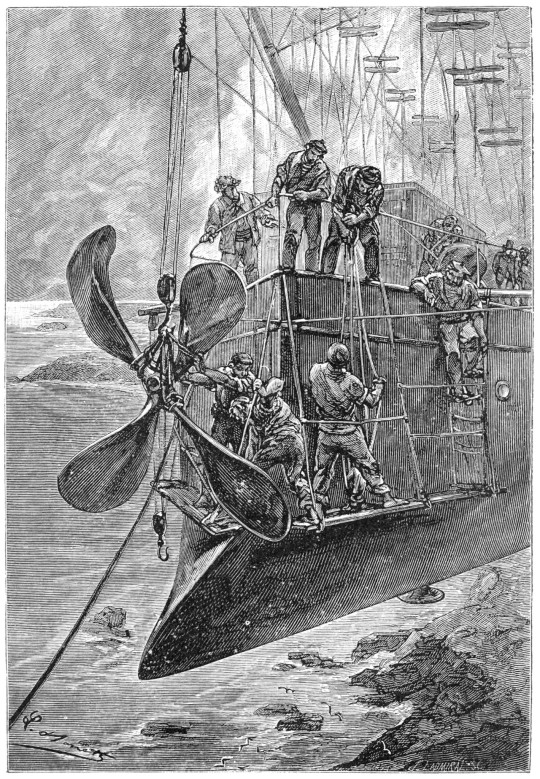
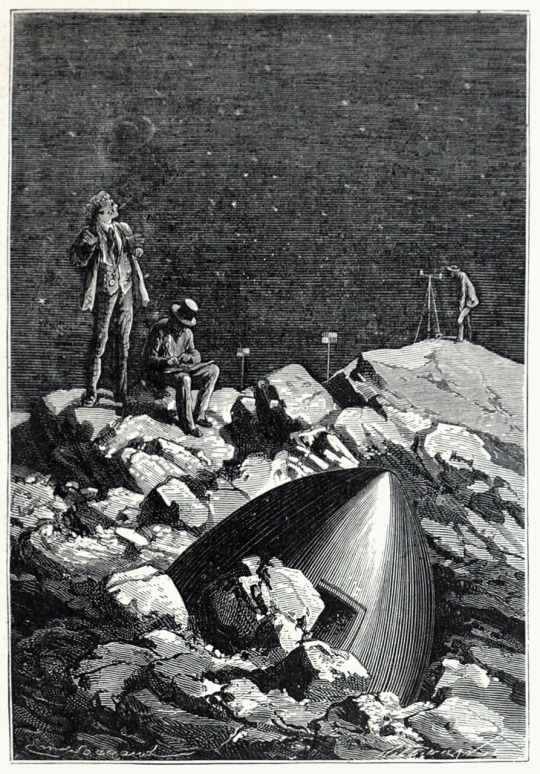
More recently, the name homo faber has been coined for the mediocre people. Homo faber means crafting man. This is the one about whom Plotinus says that he is unfit for a serious career. If one wants to understand this man, one must turn to the Hebrew tradition. This tradition teaches that creation is only perfect if it passes through four stages. Creation is born in the realm of potentials (aziluth) as possibility and thought. From there it moves into the virtual world (berijah), this is the first step of realization. Then it must be shaped (jezirah) and finally physically made (assiyah). Homo faber only lives in this last, fourth circle. It deals only with what needs to be done manually and physically. What is usually called an invention today is such a monstrous creation that does not affected by the spiritual phases, which is why it is such a wasteful creation. That is why most of the machines are strange and grotesque. The machine was not made to be an object of joy forever, like a work of art. All machines are gnome-like because they are mere fabrications. The Homo faber is such a clumsy man. The operation of the machine is scary, and comical at the same time. The machine is stupid. There is hardly anything more ridiculous than watching the ever-repeating motions of it, as it spits out the tin elephants from itself. Since each thing is not only itself, but also a symbol and a sign of something else, the question must be asked, what is the machine a symbol of? The machine is a symbol of the rational function, of the human ability below the certain spiritual minimum, which was just mentioned, that is mediocrity, that is, lack of talent. Since the machine only moves in the circle of doing (circle of repeated mechanical acts*), it only does something that can it done, and nothing else. Therefore, all technical creations, like sound records, photographs and reproductions, these are only factitious objects, machine-made copies.* The machine does not create, but repeat. That's what's so outrageously comical about it, because life can do many things except repeating. The machine stands outside of time. It has no metaphysics. And if someone were to ask what the metaphysics of this lack of metaphysics is, the answer would be that the fear of time appears here. Man has managed to create something that has no awareness of passing away. However, this work is, unfortunately, idiotic and can only say the same thing over and over again. What does not know death does not live. The machine has no guilt, no conscience, no religion. The technique, let's say, is ineptia mysterii (insensitive to mystery, or to be more precise, to human spirit, and the mystery of inward and intimate humane relations*). Therefore, it is ultimately an occult phenomenon.
People like the machine because it is obedient.
The advantage of a machine over a human is that it does not require freedom. The dictator's ideal is the machine.
The machine is just practice, without any theory. But we know that practice is depraved theory.
The machine is reason manifested, technology is rationalism manifested. Accelerating and shortening intervention in the processes of nature. A kind of artificial and counter-nature where things are predictable because there is no life span.
Technology is an attempt to make people live without sacrifice. The machine is liked by the person who believes that he is at home on the earth.
Machine sentimentality (electric chair).
Technology is the triumph of the outside world, that is, technology is proof that even the wildest phantasm has a greater reality than the outside world.
Whoever builds on the outside world degrades humanity.
Technology is the desacralization of human work.
The comforting nature of technical civilization eliminates the tragic. Now there is only accident.
Sacred and profane work. There is no fruitful work without valeur liturgique (liturgical value*, M. Eliade).
There is no separate sacred and profane work. Work is the realization of dreams. Mediocre dreams (Verne novels, technique). Technique, being inspired by the fear of time, is an insurance against passing away. Illusion. This is the mechanical ideal of immortality.
A never been imagined materiality.
Technology is the fainting of the spirit.
Inventing technology is not productivity.
Technology is a defense against the threat of genius. The craftsman hides in his craft so that he does not have to deal with serious matters. Hence the spiritual deafness of technical man.
The technical person has a freak sense of reality.
Technology and genderlessness. A hermaphrodite machine, neither begets nor gives birth. He excretes. The infernal character of machines.
Technical civilization and narcotics.
Unproductiveness of machines.
The machine is a projection of the subspiritual layer that is instinct and reflex, the base of the machine is Pavlov's world.
A mechanized nightmare like utopia.

⁴⁴ Arnold Perron: Un Rêve défaillant (A faint dream. Az ájult álomkép). Paris. Metteur. 1957.
⁴⁵ E. B. Wallace: The World of the Mediocrity (A középszerűség világa). London. Pencil and Stone. 1959.
⁴⁶ G. B. Balling: Malthus and Edison. Books of the recent times (Malthus és Edison. Legújabb idők könyvei). No.12. London. 1955.
⁴⁷ George William Allington: Technocracy and Bureaucracy. Diseases of the modern human life (Technokrácia és bürokrácia. A modern emberi élet betegségei). New York, Ontario. 1956.
⁴⁸ E. B. Wallace: I.m. 188-216. p.
⁴⁹ A. Perron: I.m. 127-141. p.
* extended/explanatory translations by the op
#bela hamvas#hamvas béla#appendix on mediocrity#social criticism#metaphyics#mediocrity#technocracy#technology#environmental impact#philosophy#mircea eliade#social philosophy#philosophy of history#time#patmos#rationalism#idealism#socialism
8 notes
·
View notes
Text

youtube
#tiktok#exotic animals#exotic pets#problematic#animal cruelty#animal rights#animal abuse#animal video#wild animals#animal#animals#animal posting#animalblr#video essay#environmentalism#environmental science#environmental impact#ecology#environmental#tiktok is a plague#tiktok is hell#tiktok is a disease#tiktok is toxic#tumblr recommendations#recommend#recommendation#youtube#youtube content#youtube recommendations#youtube video
35 notes
·
View notes
Text
144 notes
·
View notes
Text
AN OPEN LETTER to THE PRESIDENT & U.S. CONGRESS; STATE GOVERNORS & LEGISLATURES
Act Now: Save Public Transit from Extinction!
2 so far! Help us get to 5 signers!
I am writing to highlight the critical state of public transit in the United States and urge your support increased investment in this essential service. The challenges facing public transit—under-investment, over-reliance on car ownership, and racial disparities—have been exacerbated by the COVID-19 pandemic. It is imperative that we take bold action to address these issues for the benefit of our communities and our future.
Investing in public transit is not merely a matter of convenience; it is a necessity for tackling climate change, advancing equity, supporting essential workers, and fostering economic recovery. The largest source of carbon emissions in the U.S. stems from transportation, and increased investment in public transit can significantly reduce this impact. Furthermore, public transit plays a crucial role in providing equitable access to jobs, schools, and services, especially for those who cannot afford or do not have access to private vehicles.
With over 2.8 million essential workers relying on public transit, our pandemic response and economic recovery hinge on the strength and viability of our transit systems. According to studies, sustained investment in public transportation yields substantial economic returns, with every $1 billion invested annually resulting in approximately $5 billion in additional GDP.
I commend initiatives like the Green New Deal for Transportation and efforts by organizations such as the CHARGE coalition to electrify and expand public transportation. These initiatives are pivotal in shaping a more sustainable and equitable transportation system for all Americans.
Therefore, I urge you to support emergency relief funding for public transit and join the movement to rebuild and improve our public transit system. This is not just an investment in infrastructure; it is an investment in our collective future.
Thank you for your attention to this urgent matter. I look forward to your support in advancing policies that will ensure a robust and accessible public transit system for all.
📱 Text SIGN PZHBAF to 50409
🤯 Liked it? Text FOLLOW IVYPETITIONS to 50409
💘 Q'u lach' shughu deshni da.
🏹 "What I say is true" in Dena'ina Qenaga
#ivypetitions#PZHBAF#resistbot#walkable cities#no cars#public transport#Public Transit#Transportation#Infrastructure#Equity#Climate Change#Essential Workers#Economic Recovery#Green New Deal#Sustainability#Community Access#Environmental Impact#Racial Justice#Urban Mobility#Public Transportation#Advocacy#Investment#Congress#Government#Policy#Legislation#COVID-19 Response#Public Health#Environmental Justice#Social Equity
2 notes
·
View notes